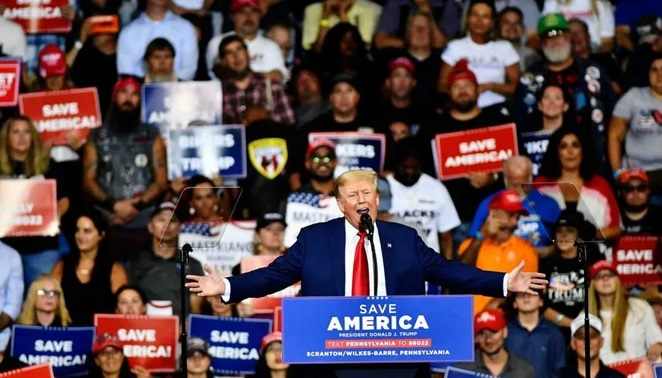Trump will put 100% tariffs on Chinese electric cars made in Mexico.
A new phase in the US-China trade conflict will always have repercussions throughout Europe. Additionally, Donald Trump, the front-runner for the US presidency, declared in a speech during the campaign that he would erect a wall of tariffs on Chinese electric vehicles, including those made in Mexico.

As far as we can recall, the US and Mexico have free trade agreements. A contract allows things to travel freely. A segment that many Chinese producers hope to capitalize on to establish themselves as leaders in the ailing North American market in the upcoming years.
Trump claims that Mexico has abused this deal, stealing 34 percent of US auto output over the past 30 years. This industrial relocation to its southern neighbors has been encouraged by reduced costs and fewer regulations.
To address this, Trump has stated that he will impose 100% tariffs on Chinese automobiles if elected president.
Compared to the existing situation, when cars traveling from Mexico to the United States are subject to a mere 2.5% tax, this would represent a significant difference. On the other hand, models that come straight from China are subject to a 25% tariff. Trump wants to increase that number by four, even if the products are made in Mexico.
Trump even implied in his nationalist speech that Chinese manufacturers would only be permitted to employ local labor and would not be permitted to use Chinese labor if they wanted to manufacture in the United States.
Of course, On the one hand, protectionist policies should theoretically support local production, yet these phrases have sparked intense debate and further exacerbated the situation.
Benefits include lowering emissions and generating jobs when importing automobiles from China to the US. A strike against capitalism’s globalization.
However, there is also the potential for the industry to become less competitive. Local companies will feel more relaxed about selling electric vehicles if there is more competition. The adoption of electric cars will unavoidably be slowed down, which will postpone the advantages that these vehicles bring to nations: reduced emissions, increased energy efficiency, and the creation of jobs across a range of industries, including the development and upkeep of public charging infrastructure, renewable energy sources, and even the handling and recycling of batteries.
An example is China, which was a non-entity in the industry despite robust protectionist policies. Beginning with the market’s opening in 2018, the Chinese auto sector flourished, eventually overtaking Japan to become the world’s largest automobile exporter in 2023 and doing away with the requirement to associate with a local brand.
And what will be the consequences for Europe?
As we stated from the outset, Europe will be affected by the actions that Mr. Trump has suggested.
Furthermore, if the Chinese groups cannot enter the US, it would undoubtedly mean that they will have more cars to export to other countries, which will result in a European market that is the second largest in the world, only surpassed by its own. China, in terms of electric car sales and growth.
A Europe with no duty to defend its car industry and constant anxiety over the Asian superpower, with which we share close trade and economic relations, responding.
Related Post
